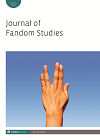
Full text loading...

This study explores how fans give meaning to pop music reunions through the lens of the life course. It does so through a content analysis of forum comments about TV series The Big Reunion, which reunites chart-topping music acts from the past decades. The fans interpret The Big Reunion in three modes closely related to their life-course position: first, now young adults, the fans read the reunion as a nostalgic phenomenon. Second, they consider the reunion as an ironic event. Third, they question The Big Reunion’s formula by reflecting on it through the prism of their current position in the life course. These readings reveal how the fans celebrate a nostalgic reflection on the pop acts of their youth; yet also offer a critique on their former, ‘naïve’ teenage/child-selves.

Article metrics loading...

Full text loading...
References


Publication Date:
https://doi.org/10.1386/jfs.7.2.133_1 Published content will be available immediately after check-out or when it is released in case of a pre-order. Please make sure to be logged in to see all available purchase options.